Balochistan, a barren region spread between Iran, Pakistan, and Afghanistan, has remained home to the Baloch separatist and nationalistic insurgencies. Rich with mineral resources, Balochistan, one of the least reported regions in South Asia, often features in the news for the presence of the Taliban’s Quetta Shura, sectarian killings, and human rights abuses committed by the Pakistani armed forces and the Baloch nationalists. In recent years, Balochistan has become a topic of interest because of the Gwadar Port, a main component of the multi-billion China-Pakistan Economic Corridor.
1
Siddiq Baluch (1940-2018) was a highly informed journalist who reported on the politics and economy of Balochistan for nearly four decades. Before starting his career as a journalist with Dawn newspaper and then launching the Balochistan Express, Mr. Baluch remained affiliated with progressive student politics and also served as the press secretary of Balochistan's first governor, Mir Ghaus Bakhsh Bizenjo. His early involvement in politics provided Mr. Baluch with unique access to the future generations of Balochistan's top politicians and policymakers. If Balochistan's conflict stems from economic under-development and exploitation, this is one book that provides an excellent overview of almost every significant economic project that matters to the people of Balochistan. The book will help readers understand the perspectives of the local communities as well as that of the government on each project. Mr. Baluch's opinions are strictly punctuated with facts.
2
In 2008, when three teenage girls were reportedly buried alive in Balochistan’s Naseerabad area, Mir Israr Zehri, a senator from the province, supported by the deputy chairman of the Senate, also from Balochistan, told fellow senators, "These [honor killings] are centuries-old traditions, and I will continue to defend them.” Hence, this book about the 2016 killing of the social media celebrity Qandeel Baloch by her own brother in the name of honor is extremely helpful in putting things in perspective on what motivates someone to go and kill their own family member in the name of family honor. Most Baloch men denied that Qandeel was ever a Baloch until her murderer-brother resolved the mystery by saying that he had killed her to guard (or restore) his Baloch family's honor. Hundreds of women have been killed in Balochistan in recent years in the name of honor. Most men conveniently deny them by terming the reports as 'false charges to defame our culture."
3
This book is not only a highly recommended political autobiography on Pakistani politics, but it is also one of the best first-hand accounts of several developments that led to the Balochistan conflict. The book shows why political biographies are essential and why experience matters. For example, decades ago, Mazari, a key opposition leader in 1970s and 80s, had warned Islamabad of dire consequences if the Baloch grievances were not addressed immediately. A Baloch from Punjab, Mazari remained very close to the Balochs of Balochistan. He was a friend and a relative of some of the top figures of the Baloch nationalist movement since his college days. He attended the Aitchison College in Lahore with Nawab Bugti (his brother-in-law), Ahmed Nawaz Bugti, and Nawab Khair Bakhsh Marri. He saw the personal and political evolution and the rise of these Baloch leaders. Mazari’s book provides a unique insider story from the world of the Baloch tribal and political elite.
4
Selig Harrison, a former South Asia correspondent of the Washington Post, rightly deserves to be credited for introducing Balochistan to American readers. More than three decades after the publication of this book, it wouldn’t be an exaggeration to describe it as the Bible of the Baloch nationalist movement. This is not a history book but is one of those unique books where one gets to read about the Balochs of Pakistan and Iran and their aspirations. On the top of it, Harrison also traveled to Islamabad and Tehran to speak to the Pakistani and Iranian leaders to see how seriously they take the Baloch nationalism and threats it poses. Interestingly, most of the contents in the book remain relevant and helpful even today as not much has changed in the Baloch and Pakistani/Iranian narratives throughout these decades since the book was first published.
5
Iran and Pakistan have had various strategies to suppress frequent Baloch uprisings. While the Balochs accuse them of applying brute force to silence their political demands, the leaders of the two countries insist that the Balochs have taken their lack of military action for granted. Among all the threats, the idea of a Greater Balochistan seems the least tolerable for Tehran and Islamabad. Under this scheme, the Baloch nationalists want to form a country out of the Baloch areas of Iran, Pakistan, and Afghanistan. In this book, Dr. Inayatullah Baloch explains, with the help of several historical documents, what goes on in the minds of those who justify and support this ambitious scheme.
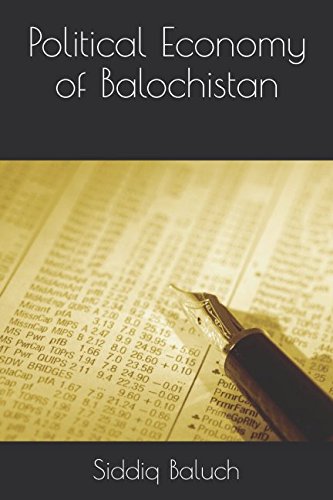
1
Siddiq Baluch (1940-2018) was a highly informed journalist who reported on the politics and economy of Balochistan for nearly four decades. Before starting his career as a journalist with Dawn newspaper and then launching the Balochistan Express, Mr. Baluch remained affiliated with progressive student politics and also served as the press secretary of Balochistan's first governor, Mir Ghaus Bakhsh Bizenjo. His early involvement in politics provided Mr. Baluch with unique access to the future generations of Balochistan's top politicians and policymakers. If Balochistan's conflict stems from economic under-development and exploitation, this is one book that provides an excellent overview of almost every significant economic project that matters to the people of Balochistan. The book will help readers understand the perspectives of the local communities as well as that of the government on each project. Mr. Baluch's opinions are strictly punctuated with facts.
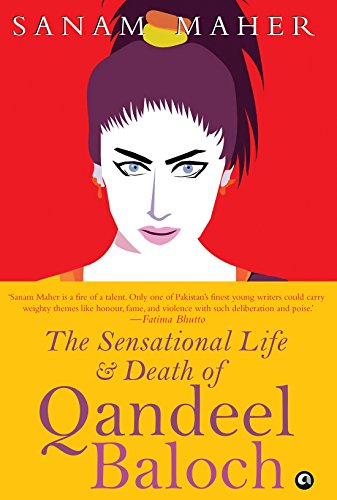
2
In 2008, when three teenage girls were reportedly buried alive in Balochistan’s Naseerabad area, Mir Israr Zehri, a senator from the province, supported by the deputy chairman of the Senate, also from Balochistan, told fellow senators, "These [honor killings] are centuries-old traditions, and I will continue to defend them.” Hence, this book about the 2016 killing of the social media celebrity Qandeel Baloch by her own brother in the name of honor is extremely helpful in putting things in perspective on what motivates someone to go and kill their own family member in the name of family honor. Most Baloch men denied that Qandeel was ever a Baloch until her murderer-brother resolved the mystery by saying that he had killed her to guard (or restore) his Baloch family's honor. Hundreds of women have been killed in Balochistan in recent years in the name of honor. Most men conveniently deny them by terming the reports as 'false charges to defame our culture."
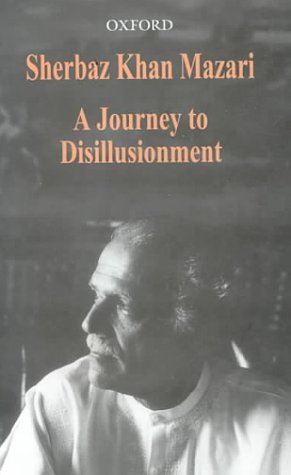
3
This book is not only a highly recommended political autobiography on Pakistani politics, but it is also one of the best first-hand accounts of several developments that led to the Balochistan conflict. The book shows why political biographies are essential and why experience matters. For example, decades ago, Mazari, a key opposition leader in 1970s and 80s, had warned Islamabad of dire consequences if the Baloch grievances were not addressed immediately. A Baloch from Punjab, Mazari remained very close to the Balochs of Balochistan. He was a friend and a relative of some of the top figures of the Baloch nationalist movement since his college days. He attended the Aitchison College in Lahore with Nawab Bugti (his brother-in-law), Ahmed Nawaz Bugti, and Nawab Khair Bakhsh Marri. He saw the personal and political evolution and the rise of these Baloch leaders. Mazari’s book provides a unique insider story from the world of the Baloch tribal and political elite.
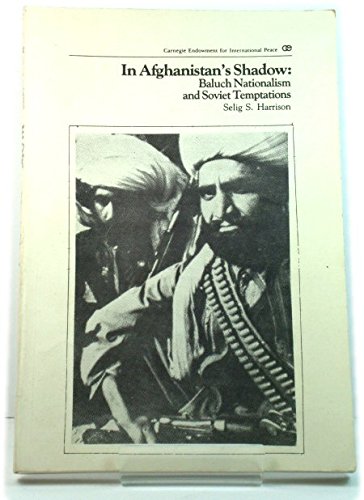
4
Selig Harrison, a former South Asia correspondent of the Washington Post, rightly deserves to be credited for introducing Balochistan to American readers. More than three decades after the publication of this book, it wouldn’t be an exaggeration to describe it as the Bible of the Baloch nationalist movement. This is not a history book but is one of those unique books where one gets to read about the Balochs of Pakistan and Iran and their aspirations. On the top of it, Harrison also traveled to Islamabad and Tehran to speak to the Pakistani and Iranian leaders to see how seriously they take the Baloch nationalism and threats it poses. Interestingly, most of the contents in the book remain relevant and helpful even today as not much has changed in the Baloch and Pakistani/Iranian narratives throughout these decades since the book was first published.
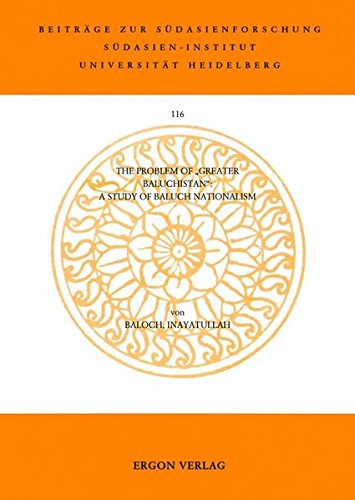
5
Iran and Pakistan have had various strategies to suppress frequent Baloch uprisings. While the Balochs accuse them of applying brute force to silence their political demands, the leaders of the two countries insist that the Balochs have taken their lack of military action for granted. Among all the threats, the idea of a Greater Balochistan seems the least tolerable for Tehran and Islamabad. Under this scheme, the Baloch nationalists want to form a country out of the Baloch areas of Iran, Pakistan, and Afghanistan. In this book, Dr. Inayatullah Baloch explains, with the help of several historical documents, what goes on in the minds of those who justify and support this ambitious scheme.
© Five Books 2026